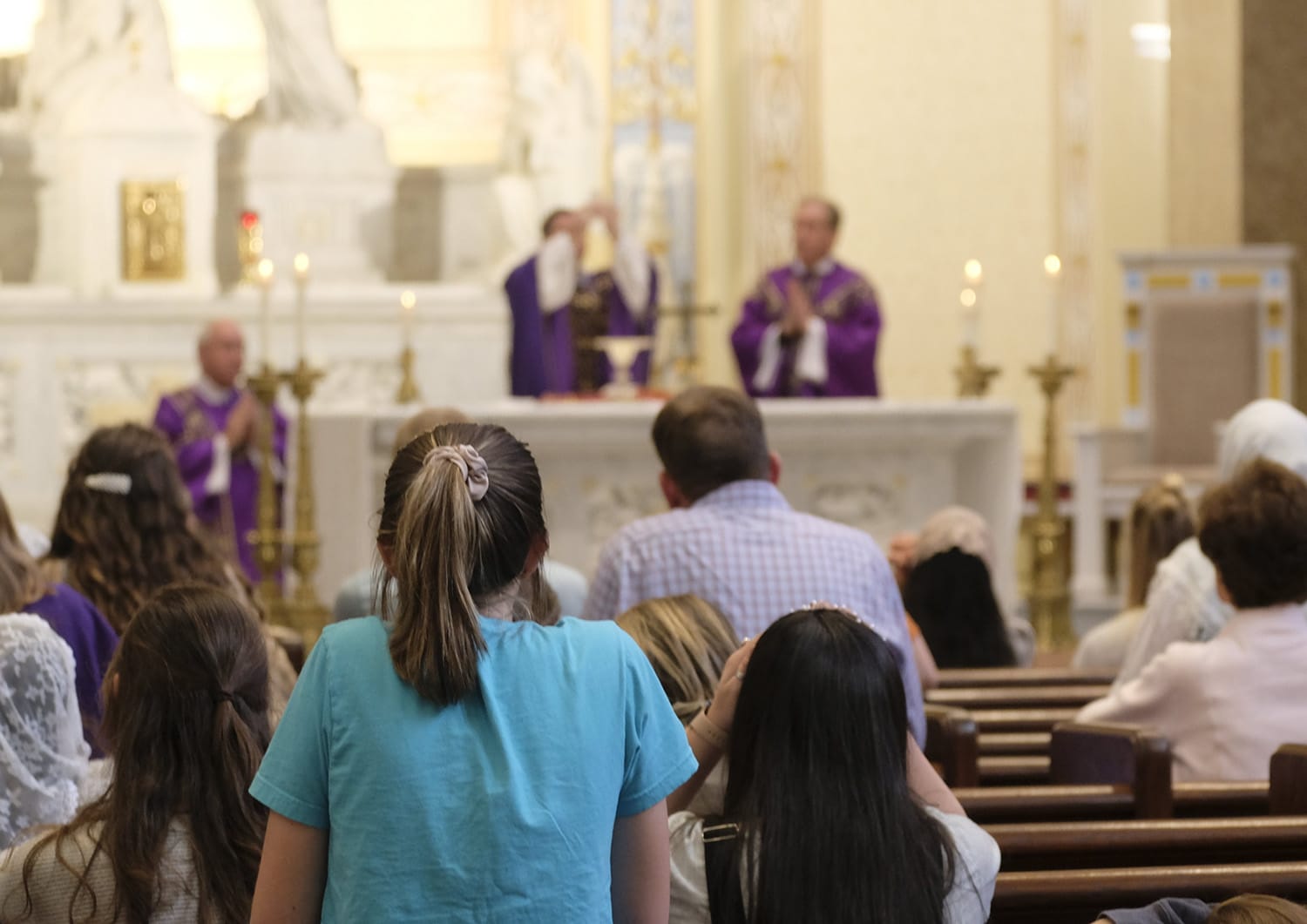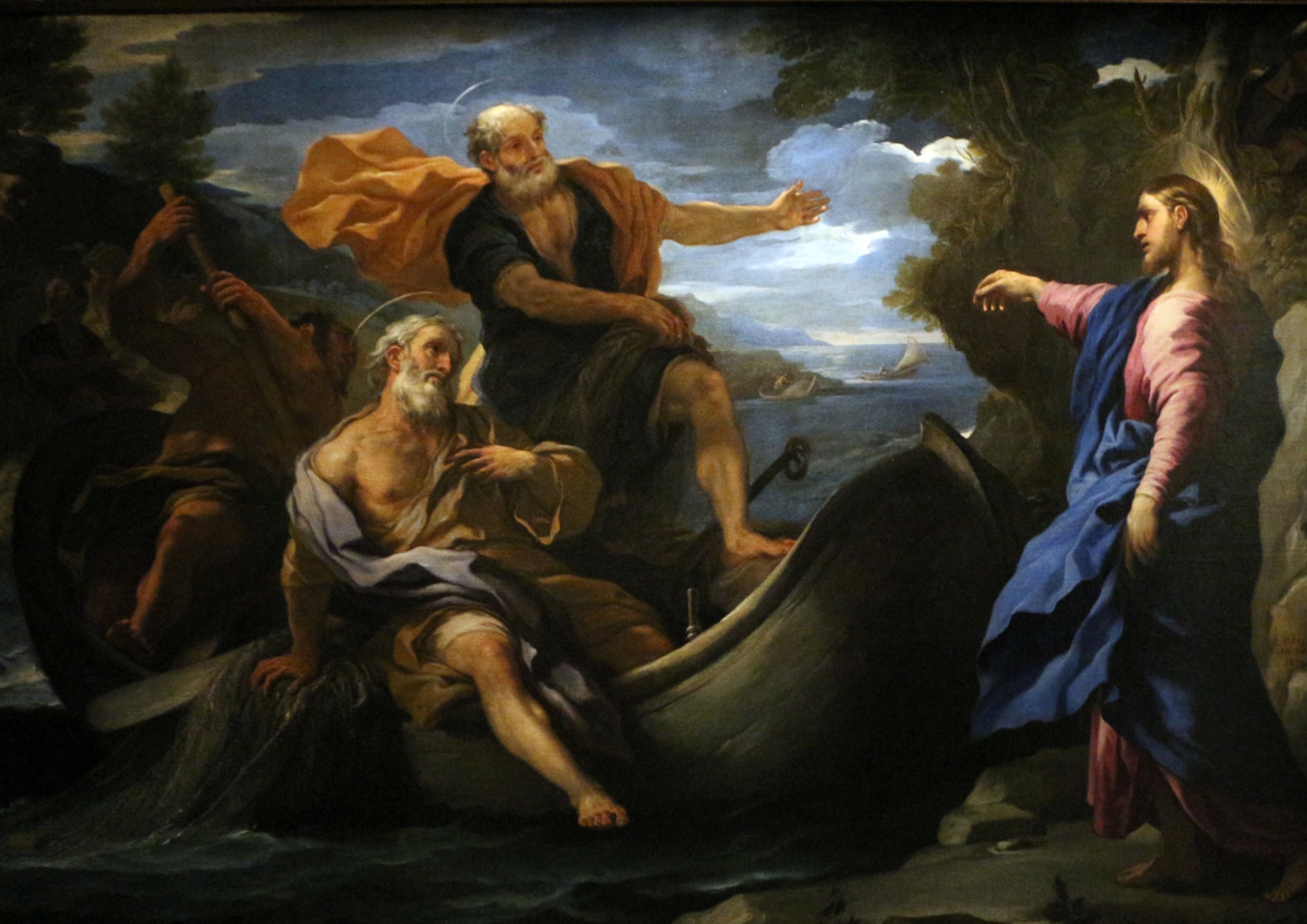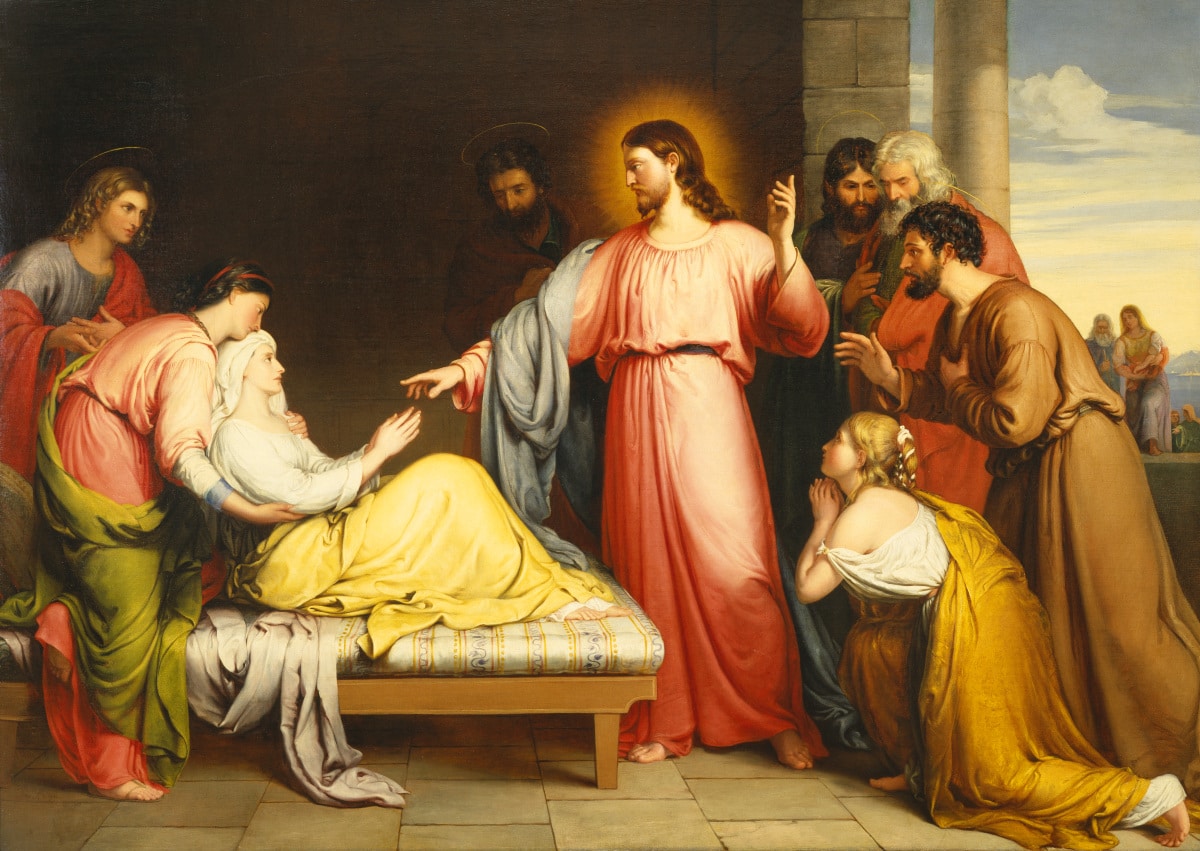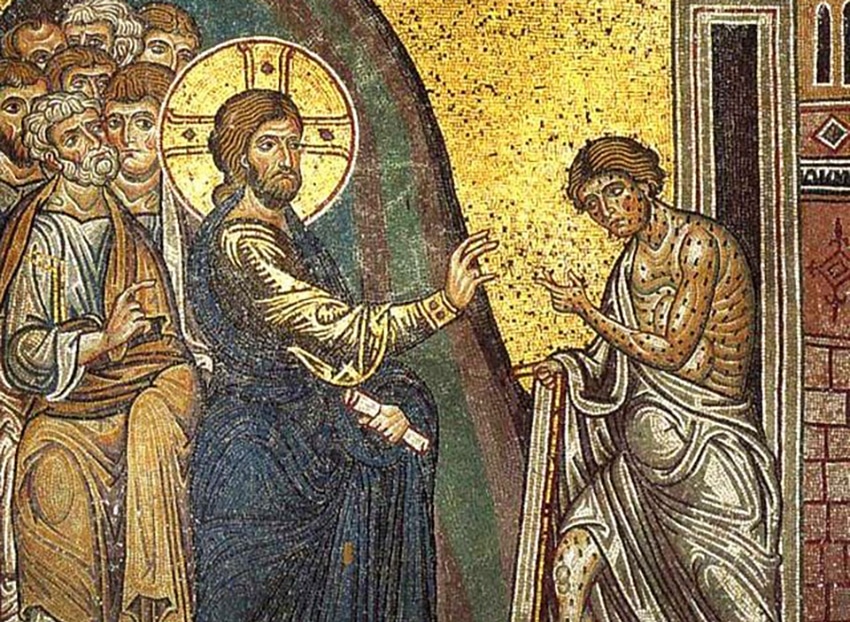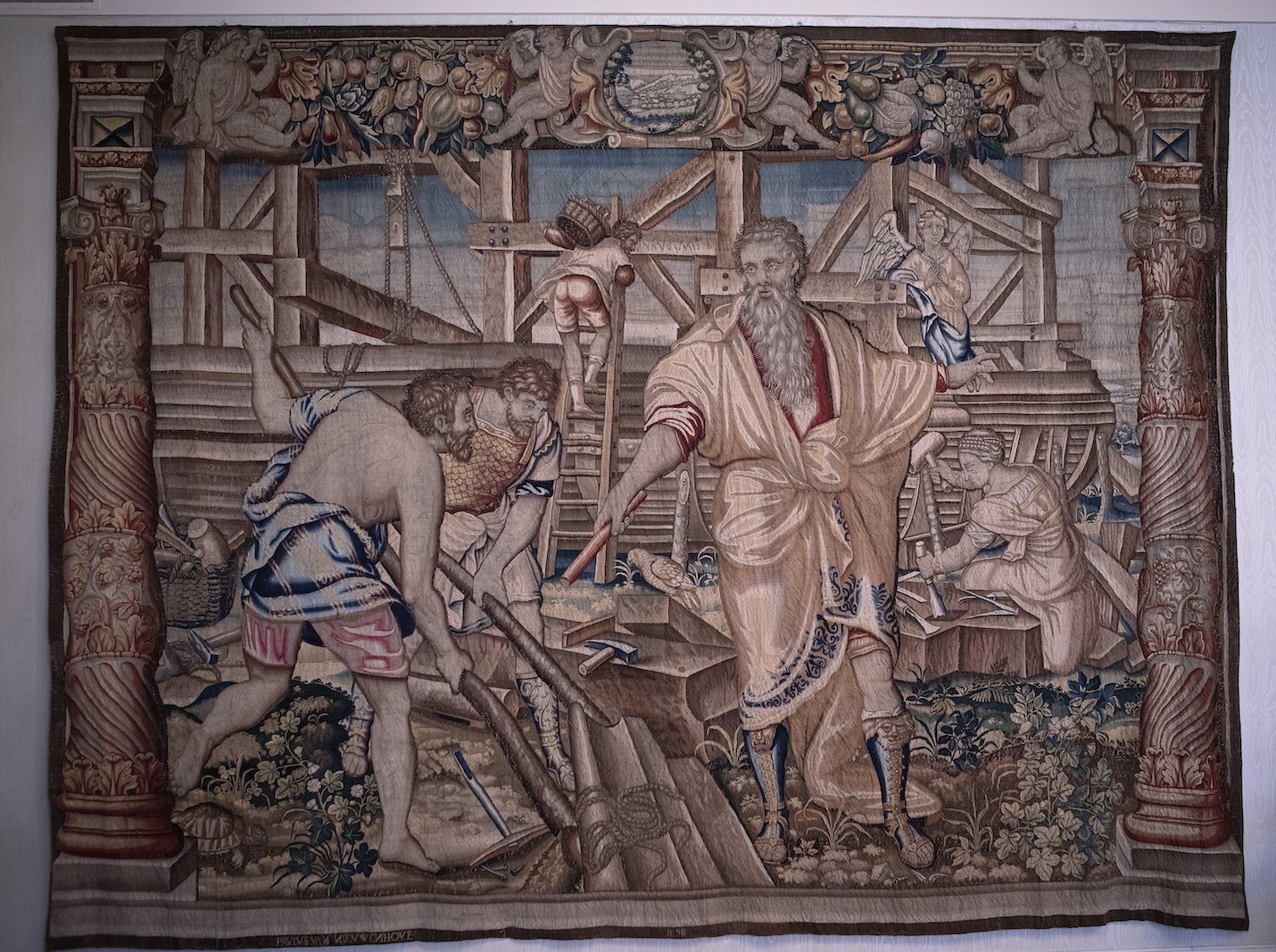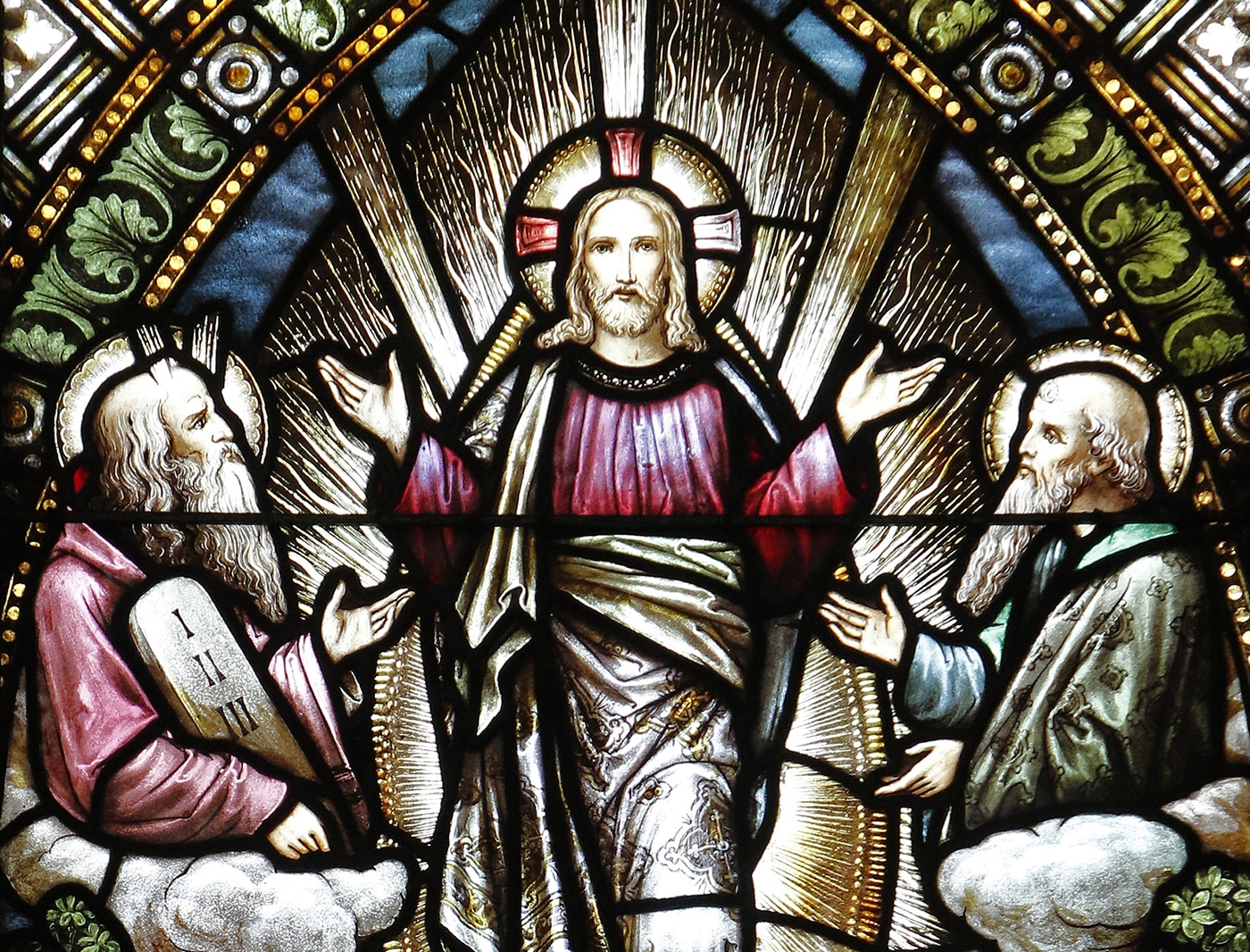It’s simple. It’s no mistake. These readings after Advent, Christmas and Epiphany all make perfect sense.
We’ve watched for Christ. We’ve found him in the manger in the arms of his Blessed Mother — this babe, this cosmic and universal Lord. And now the Church tells us stories of calling and membership. None of this is rocket science; the message is simple. Jesus Christ has been born for us, and now he calls us. He wants us to be his disciples. He wants us to follow him. This is the simple message the Church wants us to hear.
Listen for the Lord calling you by name
The Lord whispers to Samuel, calling him by name (1 Samuel 3:1-18). John the Baptist points to Jesus and says, “Behold, the Lamb of God” (John 1:36). Paul writes that we are “members” of Christ, that we do not belong to ourselves but to Jesus (1 Corinthians 6:15, 20). We are to apply these stories to ourselves. We are to listen for the Lord calling us by name; he does that, you know. You just need to become a listener, to be still and know that he is God (Psalm 46:10). You need to spend more time than you normally would in the temple nearest you, going silent in prayer. We are to look — altarward — to see and hear those very same words: Behold, the Lamb of God. We are to give ourselves entirely to Christ — not just our sentiments but our minds and wills. We are to belong wholly to Jesus.
Again, none of this is hard to understand. These readings call us to consider the quality of our discipleship. Christmas comes this time each year, but how does it change us? It’s meant to make us stronger disciples. It’s meant to make us like Samuel, like Peter, like Paul.
| January 14 – Second Sunday in Ordinary Time |
|---|
|
1 Sm 3:3-10, 19 Ps 40:2, 4, 7-8, 8-9, 10 1 Cor 6:13-15, 17-20 Jn 1:35-42 |
See yourself within the story
We have begun a mystical, liturgical journey. Born for us in mystery in the Church’s worship, we are to follow this Christ in the liturgies and sacred readings of this fresh Church year. But we are to see him and hear him within these liturgies in such a way that we see ourselves within the story. Hearing Jesus call Peter, for instance, mystically we are to hear him call us. Next week when he calls James and John, when he says his disciples are to be “fishers of men,” we are to understand that we too are called to bear witness to Christ to those around us (Mark 1:17). You see what I mean? As we follow Jesus, ultimately to Calvary and to the garden that early Easter morning to sit with Mary Magdalene, we are to see how Jesus lives and works within our own lives. The liturgy — and this is why worshiping the Lord consistently and not just occasionally matters — reveals to us God working now in the world, in us. Without the liturgy, we’d be blind; we would barely see what God is doing at all.
Be faithful
Which is why Jesus’s words are so beautiful and so challenging, because they’re words meant just as much for you as they were for those two disciples. “Come, and you will see,” Jesus says (John 1:39). That’s the invitation, and it means so much.
It’s a call to be faithful, to come to Mass each Sunday, to be consistent. It’s a call to open our eyes and look, to find the Christ working at times so hidden but at other times so clearly. It’s a call to be a disciple, a real one. It’s a challenging question: Are you a real disciple? If you’ve celebrated Christmas, you’ve already said you’re up for it. Now’s the time to show God and yourself you meant what you said when you sang with the shepherds and the angels. Now’s the time to follow. So, go and you will see. You will not regret it.

